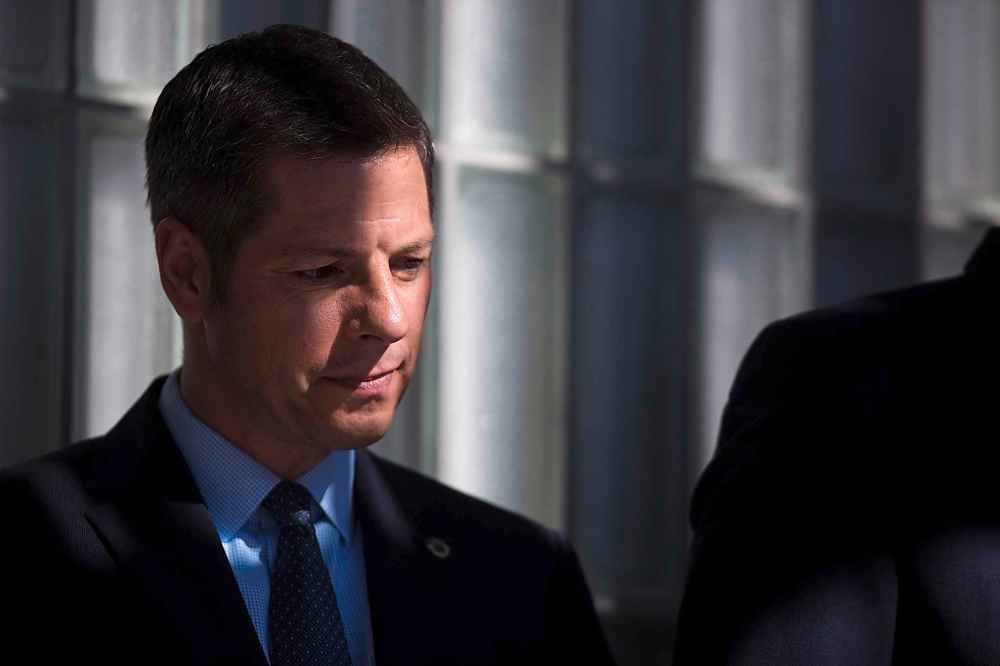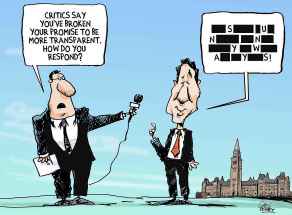Restart required if Pallister wants to get it right
Read this article for free:
or
Already have an account? Log in here »
To continue reading, please subscribe:
Monthly Digital Subscription
$0 for the first 4 weeks*
- Enjoy unlimited reading on winnipegfreepress.com
- Read the E-Edition, our digital replica newspaper
- Access News Break, our award-winning app
- Play interactive puzzles
*No charge for 4 weeks then price increases to the regular rate of $19.00 plus GST every four weeks. Offer available to new and qualified returning subscribers only. Cancel any time.
Monthly Digital Subscription
$4.75/week*
- Enjoy unlimited reading on winnipegfreepress.com
- Read the E-Edition, our digital replica newspaper
- Access News Break, our award-winning app
- Play interactive puzzles
*Billed as $19 plus GST every four weeks. Cancel any time.
To continue reading, please subscribe:
Add Free Press access to your Brandon Sun subscription for only an additional
$1 for the first 4 weeks*
*Your next subscription payment will increase by $1.00 and you will be charged $16.99 plus GST for four weeks. After four weeks, your payment will increase to $23.99 plus GST every four weeks.
Read unlimited articles for free today:
or
Already have an account? Log in here »
Hey there, time traveller!
This article was published 17/05/2019 (2399 days ago), so information in it may no longer be current.
Premier Brian Pallister claims to be committed to a better system of permitting for land use and development because, as he said recently, it’s important to ensure “the people who want to invest in Manitoba and create opportunities for jobs here have a chance to do it.”
And then, to make sure no one misunderstood how serious he is, Mr. Pallister added: “That’s a big deal and we want to make sure we get it right.”
The first part of the premier’s statement is both timely and just. A smaller province such as Manitoba cannot frustrate investors with an unnecessarily time-consuming and burdensome process of obtaining permits to build things. As demonstrated in recent Free Press stories examining alleged workplace misconduct at the City of Winnipeg’s planning, property and development department, there are real concerns that we are, in fact, doing a rather good job frustrating people who build things.

But the second part of his statement reveals another, potentially more problematic, issue. If Mr. Pallister really wants to get this important issue right, tasking his own Treasury Board secretariat to conduct a review of Winnipeg’s land use and development regime is not the preferred way of going about it.
When he first suggested a review, Mr. Pallister told reporters he wanted it to be “independent.” When his plan was revealed a few days later — without any consultation with stakeholders or advance warning — we learned the review would be conducted by senior bureaucrats who are overseen by Finance Minister Scott Fielding and who serve fully at the pleasure of the premier. That is the very antithesis of independent.
Mayor Brian Bowman immediately labelled this a “political review.” What “political” means in this context is that this review has the appearance of having more to do with punishing or embarrassing the mayor, with whom Mr. Pallister has disagreed frequently and robustly, than it is about streamlining the permit process. And although the mayor is sometimes inclined to exaggerate, particularly when it comes to his tortured relationship with his namesake in the senior level of government, in this instance it’s very likely he is not wrong.
Mr. Pallister’s idea (a broad review of land use and development processes) is sound, but his execution is lacking. It seems to be a hastily conceived idea, perhaps contaminated with a healthy dose of political malice.

There are very strong signals that, following the outcome of the Treasury Board review, Mr. Pallister will forcefully impose a new series of protocols on Winnipeg and possibly other municipalities, again without any advance consultation. The premier should at some point recognize that, bad processes or not, local governments are the experts in these matters. They need to be full partners in this review in order for it to accomplish its stated goal.
If Mr. Pallister cannot spare a moment to worry about the stress this is causing at city hall, he should think about people who build things. If this province needs a more modern, more functional system to obtain permits, variances and other approvals required to put a shovel in the ground, this is not the way to get it done.
The premier needs to go back to the drawing table, put aside his animus for the mayor, and give the people of Winnipeg and Manitoba a better, fairer and more consultative process to fix this problem. The avenue Mr. Pallister is taking now eliminates any real chance he will be able to “get it right.”










